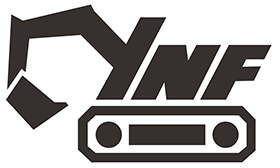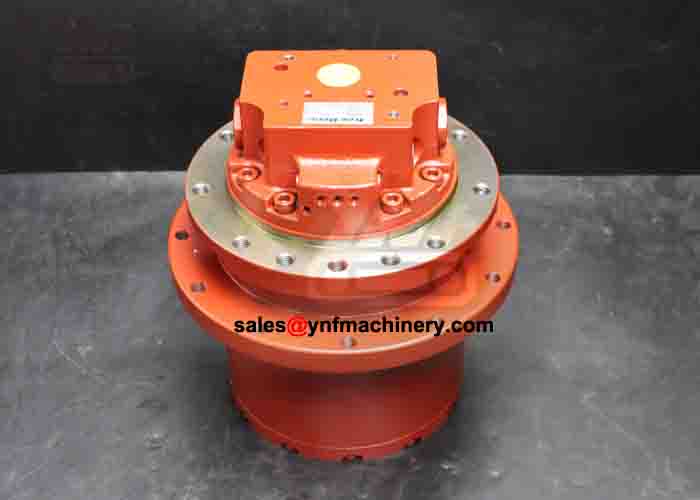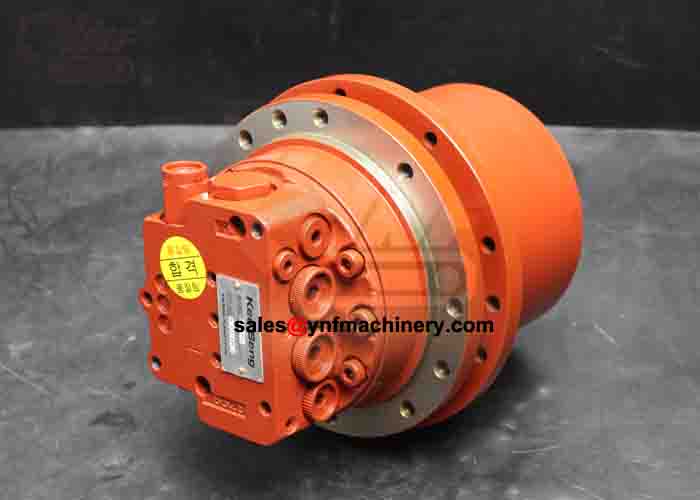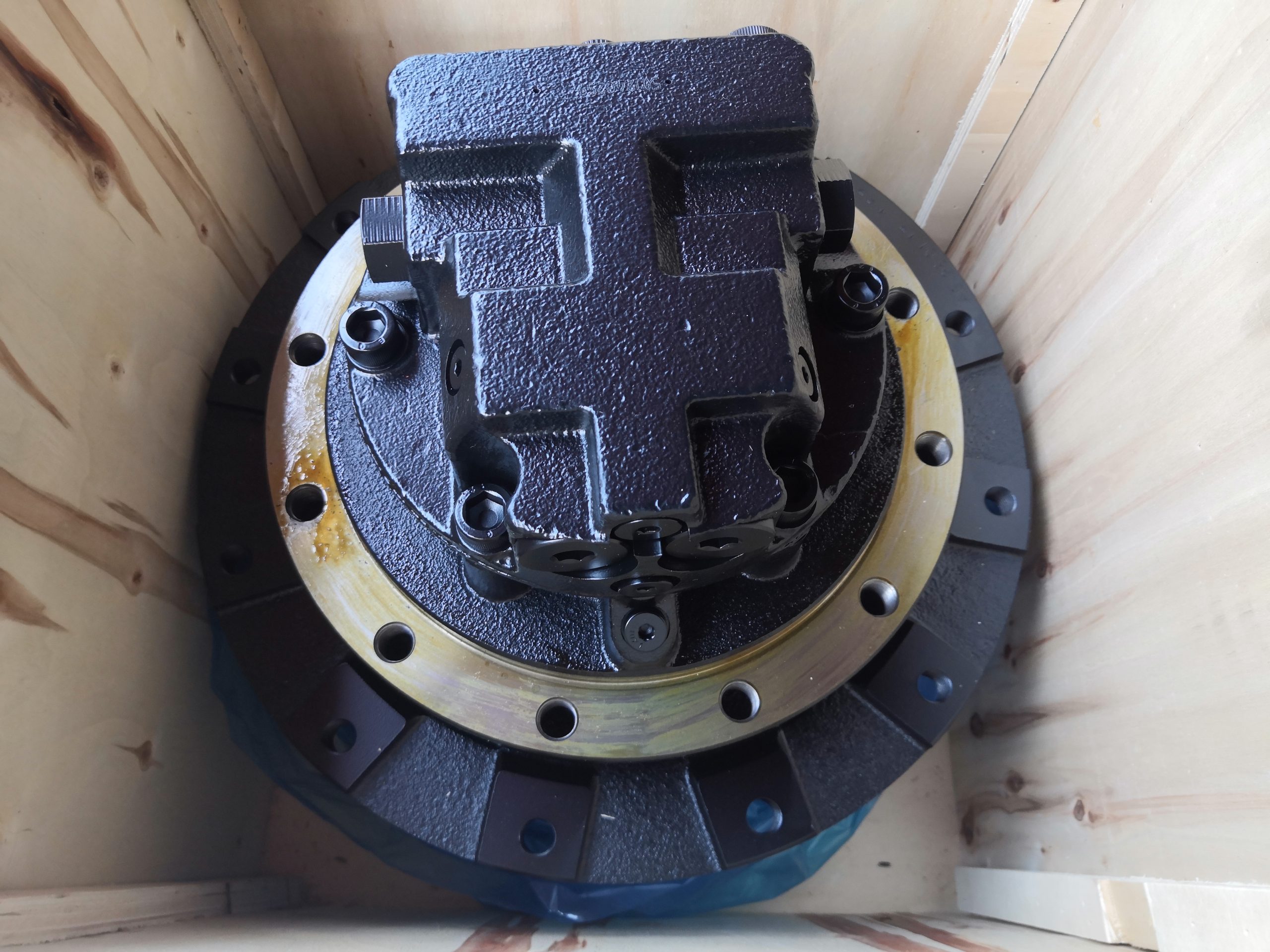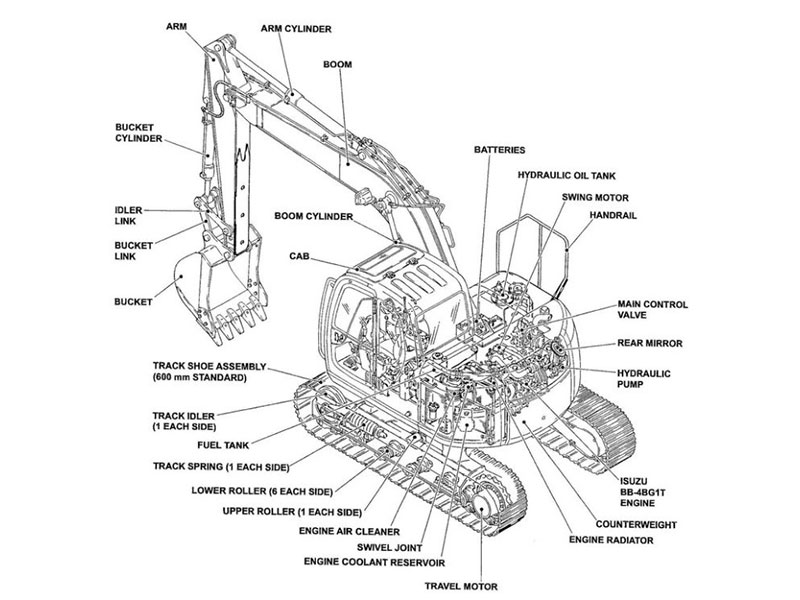Troubleshooting your excavator final drive effectively ensures smooth operations and prevents costly downtime. Ignoring signs like overheating, leaks, or unusual noises can lead to severe damage and expensive repairs. When you notice performance issues, act immediately. Begin by inspecting hydraulic connections for leaks or loose fittings. Check gear oil levels and look for contamination. Addressing these problems early saves you time and money while extending the lifespan of your equipment. Regular maintenance and quick action are your best defenses against unexpected breakdowns.
Key Takeaways
Act quickly on symptoms like unusual noises, leaks, or overheating to prevent costly repairs and downtime.
Regularly inspect hydraulic connections, oil levels, and fluid quality to maintain optimal performance of your excavator final drive.
Listen for diagnostic clues during operation; strange sounds can indicate internal damage that needs immediate attention.
Conduct thorough visual inspections to identify wear and damage in components like seals, gears, and bearings.
Establish a consistent maintenance routine, including regular oil changes and monitoring for leaks, to extend the lifespan of your equipment.
Seek professional help for complex issues that go beyond basic troubleshooting to avoid further damage and ensure safe operation.
Implement proper operational techniques, such as avoiding overloading and using smooth movements, to reduce strain on the final drive.
Recognizing Symptoms of Excavator Final Drive Issues
Identifying the early signs of problems in your excavator final drive can save you from costly repairs and downtime. Paying attention to specific symptoms ensures you address issues before they escalate. Below are the key indicators to watch for.
Unusual Noises in the Final Drive
Strange noises often signal internal damage or wear in the final drive. You might hear grinding sounds, which could indicate worn-out gears or bearings. At low speeds, these noises may shift to a growling tone, while high-pitched whining can occur as the speed increases. These changes in sound patterns suggest that some components have reached the end of their lifespan and need replacement.
“A motor might start with a grinding noise that progresses to a low-pitched growl at low speeds and then a high-pitched whine.”
Ignoring these noises can lead to further damage. Regularly listen for unusual sounds during operation and act promptly when you notice them.
Leaks and Fluid Loss in the Final Drive
Fluid leaks are another common symptom of final drive issues. Leaks often occur when seals wear out or when excessive oil pressure pushes the seal out of place. You may notice oil pooling beneath the excavator or dripping from the final drive hub. Fluid loss not only reduces lubrication but also increases the risk of overheating and internal damage.
Inspect the area around the final drive for signs of leaks. Check the oil levels frequently and ensure they remain within the recommended range. Addressing leaks early prevents further complications and keeps your equipment running efficiently.
Overheating of the Final Drive
Overheating is a critical warning sign that requires immediate attention. It often results from insufficient lubrication, contaminated oil, or excessive load on the final drive. When the final drive overheats, it can cause severe damage to internal components, leading to costly repairs.
Monitor the temperature of the final drive during operation. If you notice it running hotter than usual, stop the machine and investigate the cause. Regularly changing the gear oil and ensuring proper lubrication can help prevent overheating.
Loss of Power or Performance in the Final Drive
A noticeable loss of power or performance in your excavator final drive often signals underlying issues that require immediate attention. When the final drive struggles to deliver the expected output, it can disrupt your operations and lead to costly delays. Understanding the causes behind this problem helps you take the right steps to resolve it.
One common reason for power loss is insufficient hydraulic pressure. Hydraulic systems rely on proper pressure levels to function efficiently. Low pressure can result from clogged filters, damaged hoses, or worn-out hydraulic pumps. Begin by inspecting the hydraulic connections and filters. Look for blockages or leaks that might be restricting the flow of hydraulic fluid.
Another potential cause is contamination in the gear oil or hydraulic fluid. Dirt, debris, or water entering the system can compromise the performance of the final drive. Contaminated oil reduces lubrication, leading to increased friction and wear on internal components. Regularly check the oil quality and replace it if contamination is detected. Maintaining clean oil ensures smooth operation and prevents further damage.
Excessive load on the excavator can also contribute to power loss. Operating the machine beyond its capacity puts extra strain on the final drive, causing it to underperform. Monitor the load limits of your equipment and avoid overloading to protect the final drive from unnecessary stress.
Weakness in the final drive becomes more apparent when the excavator operates on slopes or carries heavy loads. If you notice a significant drop in performance during these conditions, it may indicate worn-out gears or bearings. Addressing these issues promptly prevents further deterioration and restores the efficiency of your excavator.
“Weakness in the final drive is often more noticeable when the excavator is traveling on a slope or carrying a load, indicating potential issues.”
To maintain optimal performance, prioritize regular inspections and maintenance. Check hydraulic pressure, monitor oil quality, and ensure the final drive operates within its designed capacity. These proactive measures help you avoid unexpected breakdowns and extend the lifespan of your equipment.
Diagnosing Excavator Final Drive Problems
Diagnosing issues in your excavator final drive requires a systematic approach. By identifying the root cause early, you can prevent further damage and costly repairs. Below are practical steps to help you pinpoint problems effectively.
Conducting Visual Inspections
Start by visually inspecting the final drive and its surrounding components. Look for signs of wear, damage, or irregularities. Pay close attention to the seals and gaskets. Worn-out seals often lead to oil leaks, which can compromise the performance of the final drive. Check for oil pooling beneath the machine or dripping from the hub.
Examine the tracks and sprockets for tightness or poor condition. Tracks that are too tight or damaged can strain the final drive, leading to power loss or overheating. Inspect the case drain filter for clogs, as blockages can restrict hydraulic flow and cause performance issues.
“Symptoms of power loss in final drives include drifting to one side, lack of turning, and potential causes such as clogged case drain filters or weak charge pumps.”
A thorough visual inspection helps you identify visible problems and ensures you address them before they escalate.
Listening for Diagnostic Clues
Unusual sounds often provide valuable clues about the condition of your excavator final drive. Listen carefully during operation for grinding, whining, or growling noises. These sounds may indicate worn-out bearings, gears, or other internal components. Vibrations or shuddering can also signal underlying issues.
“Unusual sounds and vibrations in final drives can indicate potential issues leading to catastrophic failure.”
Operate the excavator at different speeds and under varying loads to detect changes in noise patterns. For example, a high-pitched whine at higher speeds might suggest a weak charge pump or internal wear. Address these auditory clues promptly to avoid further damage.
Testing Hydraulic Pressure in the Final Drive
Hydraulic pressure plays a critical role in the performance of your excavator final drive. Testing the hydraulic pressure helps you determine if the system is functioning correctly. Begin by checking the pressure levels against the manufacturer’s specifications. Low hydraulic pressure often results from clogged filters, damaged hoses, or a failing hydraulic pump.
Inspect the hydraulic connections for leaks or loose fittings. Even minor leaks can reduce pressure and affect the final drive’s efficiency. If the excavator struggles to turn or drifts to one side, it may indicate insufficient hydraulic pressure or a weak charge pump.
Regularly testing hydraulic pressure ensures the system operates at optimal levels. This proactive step minimizes the risk of unexpected breakdowns and extends the lifespan of your equipment.
Analyzing Gear Oil and Hydraulic Fluid
The condition of gear oil and hydraulic fluid plays a critical role in the performance of your excavator final drive. Regular analysis of these fluids helps you detect potential issues early and maintain the efficiency of your equipment. Below are the key steps to evaluate and address fluid-related problems effectively.
1. Check for Contamination
Contaminated gear oil or hydraulic fluid can severely impact the performance of your final drive. Dirt, debris, or water entering the system compromises lubrication and increases wear on internal components. Inspect the fluid for unusual discoloration, cloudiness, or the presence of particles. These signs often indicate contamination.
“Contamination in the oil of the final drive can lead to significant issues, making it crucial to monitor oil quality regularly.”
If contamination is detected, drain the fluid immediately and replace it with clean, high-quality oil. This simple step prevents further damage and ensures smooth operation.
2. Monitor Fluid Levels
Maintaining proper fluid levels is essential for the optimal functioning of your excavator final drive. Low oil levels reduce lubrication, leading to overheating and increased friction. On the other hand, overfilling the hub can push seals out of place, causing leaks.
Regularly check the fluid levels using the manufacturer’s guidelines. Ensure the levels remain within the recommended range. Address any discrepancies promptly to avoid unnecessary strain on the final drive.
3. Evaluate Fluid Quality
The quality of gear oil and hydraulic fluid directly affects the lifespan of your final drive. Over time, oil degrades due to heat, pressure, and contamination. Degraded oil loses its ability to lubricate effectively, increasing the risk of component failure.
Analyze the fluid for viscosity and consistency. Thickened or sludgy oil indicates degradation and requires immediate replacement. Using fresh, high-quality oil enhances lubrication and protects the internal components of your final drive.
4. Identify Signs of Wear
Gear oil and hydraulic fluid can reveal valuable clues about the condition of your final drive. Metallic particles in the oil often indicate wear on gears or bearings. These particles result from friction between components and signal the need for maintenance.
“Unusual sounds and vibrations in final drives can indicate potential issues leading to catastrophic failure. Worn-out bearings and similar issues can cause odd noises and excessive vibration.”
If metallic particles are present, inspect the final drive for worn-out parts. Replacing damaged components early prevents further deterioration and costly repairs.
5. Establish a Maintenance Routine
A consistent maintenance routine ensures the longevity of your excavator final drive. Schedule regular oil changes based on the manufacturer’s recommendations. Use only the specified type of gear oil and hydraulic fluid to maintain compatibility and performance.
By prioritizing fluid analysis, you can prevent common issues like overheating, power loss, and leaks. This proactive approach keeps your excavator running efficiently and minimizes downtime.
Step-by-Step Troubleshooting for Excavator Final Drives
Fixing Leaks in the Final Drive
Leaks in the final drive can lead to significant performance issues and costly repairs. To address this problem, start by identifying the source of the leak. Inspect the seals, gaskets, and surrounding areas for visible damage or wear. Worn-out seals are a common cause of leaks and should be replaced immediately.
After locating the leak, check the oil levels in the final drive. Low oil levels often accompany leaks and can result in insufficient lubrication. Refill the oil to the manufacturer’s recommended level, but avoid overfilling, as this can push seals out of place and worsen the issue.
Regularly monitoring for leaks during operation helps you catch problems early. As noted, “Noticing evidence of leaks can help extend the life of drive motors and prevent expensive repairs.” By addressing leaks promptly, you ensure the longevity of your excavator final drive and maintain its efficiency.
Resolving Overheating Issues
Overheating in the final drive signals a critical problem that requires immediate attention. Begin by checking the gear oil. Insufficient or contaminated oil often causes overheating. Drain the old oil, clean the system, and refill it with fresh, high-quality oil that meets the manufacturer’s specifications.
Inspect the hydraulic system for blockages or damage. Clogged filters or damaged hoses can restrict fluid flow, leading to excessive heat buildup. Replace any faulty components to restore proper circulation. Additionally, ensure the excavator is not operating under excessive load, as this can strain the final drive and cause overheating.
Monitoring the temperature of the final drive during operation is essential. If you notice it running hotter than usual, stop the machine and investigate. Regular maintenance, such as checking gear oil levels and replacing degraded oil, plays a vital role in preventing overheating and protecting the internal components.
Addressing Power Loss in the Final Drive
Power loss in the final drive disrupts operations and reduces productivity. To resolve this issue, start by inspecting the hydraulic system. Low hydraulic pressure often causes power loss. Check for clogged filters, damaged hoses, or loose connections. Replace or repair any faulty parts to restore pressure.
Contaminated gear oil or hydraulic fluid can also lead to power loss. Dirt, debris, or water in the system compromises lubrication and increases friction. Drain and replace the fluid if contamination is detected. Using clean, high-quality oil ensures smooth operation and prevents further damage.
Excessive load on the excavator can strain the final drive and reduce its performance. Operate the machine within its designed capacity to avoid unnecessary stress. Weakness in the final drive becomes more noticeable when the excavator operates on slopes or carries heavy loads. Addressing these issues promptly restores efficiency and prevents further deterioration.
By following these steps, you can effectively troubleshoot power loss and maintain the optimal performance of your excavator final drive. Regular inspections and proactive maintenance are key to avoiding unexpected breakdowns and extending the lifespan of your equipment.
Eliminating Unusual Noises
Unusual noises in your excavator final drive often indicate underlying issues that require immediate attention. Ignoring these sounds can lead to severe damage and costly repairs. By identifying and addressing the source of the noise, you can maintain the efficiency and longevity of your equipment.
1. Identify the Type of Noise
Different noises point to specific problems within the final drive. Grinding sounds often signal worn-out gears or bearings. A growling noise at low speeds may indicate internal wear, while a high-pitched whine at higher speeds could suggest hydraulic pressure issues. Pay close attention to these sound patterns during operation.
“Noticing new vibrations or noises can help extend the life of drive motors and prevent expensive repairs and unscheduled downtime.”
Listening carefully to your equipment helps you detect these early warning signs and take action before the problem worsens.
2. Inspect the Final Drive Components
Begin by visually inspecting the final drive for signs of wear or damage. Check the gears, bearings, and seals for irregularities. Worn-out bearings often cause grinding or vibrating noises. Loose or damaged components can also create unusual sounds during operation. Tighten or replace any faulty parts to eliminate the noise.
Regular inspections ensure that you catch potential issues early, reducing the risk of unexpected breakdowns.
3. Check the Gear Oil and Hydraulic Fluid
Low or contaminated gear oil can contribute to unusual noises in the final drive. Insufficient lubrication increases friction, leading to grinding or whining sounds. Drain the old oil, clean the system, and refill it with fresh, high-quality oil. Ensure the oil level matches the manufacturer’s recommendations.
Contaminated oil, often caused by dirt or water, compromises the performance of the final drive. Replace the oil immediately if contamination is detected. Maintaining clean and sufficient oil levels prevents excessive wear and eliminates noise caused by friction.
4. Test the Hydraulic System
Hydraulic pressure plays a critical role in the performance of the final drive. Low pressure can result in whining or growling noises. Inspect the hydraulic connections for leaks or blockages. Check the filters and hoses for clogs or damage. Replace any faulty components to restore proper pressure.
Testing the hydraulic system ensures smooth operation and reduces the likelihood of noise caused by pressure imbalances.
5. Monitor During Operation
Operate the excavator under different conditions to identify when the noise occurs. For example, noises that intensify on slopes or under heavy loads may indicate worn-out gears or bearings. Monitoring the equipment during operation provides valuable clues about the source of the problem.
“Regularly checking gear oil levels and detecting leaks during final drive operation can contribute to prolonging the life of the final drive and its components.”
By staying vigilant, you can address unusual noises promptly and prevent further damage.
6. Establish a Maintenance Routine
A consistent maintenance routine helps you avoid noise-related issues in the future. Schedule regular inspections, oil changes, and hydraulic system checks. Use only high-quality parts and fluids to ensure optimal performance. Preventive maintenance keeps your excavator final drive running smoothly and minimizes downtime.
Eliminating unusual noises requires a proactive approach. By identifying the type of noise, inspecting components, and maintaining proper lubrication, you can resolve issues effectively. These steps protect your equipment and ensure reliable performance during operation.
When to Seek Professional Help for Excavator Final Drives
Identifying Complex Final Drive Issues
Some final drive problems go beyond basic troubleshooting and require professional expertise. You might encounter issues that are difficult to diagnose or repair without specialized tools and knowledge. For example, if your excavator exhibits persistent overheating despite regular oil changes and proper lubrication, the problem could stem from internal damage or a malfunctioning component. These situations demand a deeper inspection by an expert.
Unusual noises that persist after addressing common causes, such as low gear oil or worn-out bearings, also indicate a more complex issue. Grinding or whining sounds may signal internal wear that requires disassembly and detailed examination. Attempting to fix such problems without the right skills can lead to further damage.
Hydraulic pressure inconsistencies often point to underlying system failures. If you notice weak performance, drifting, or difficulty turning, the hydraulic system might have a damaged pump or clogged filters. These issues require precise testing and repairs that professionals can handle effectively.
“A leaking final drive foretells that a repair or replacement is yet to come. Low hydraulic fluid or gear oil increases wear on the equipment.”
Leaks that persist even after replacing seals or gaskets suggest deeper problems, such as cracks in the housing or excessive internal pressure. Professionals can identify these hidden issues and provide the necessary solutions to restore your excavator’s performance.
Avoiding Further Damage with Expert Assistance
Seeking professional help at the right time prevents minor issues from escalating into costly repairs. Experts possess the tools and experience to address problems accurately and efficiently. They can disassemble the final drive, inspect each component, and identify wear or damage that might not be visible during routine checks.
Professionals also ensure the correct use of high-quality lubricants like gear oil, which plays a critical role in maintaining the final drive. Proper lubrication reduces friction, prevents metal-to-metal contact, and transfers heat away from critical surfaces. Without enough gear oil, friction generates excessive heat, leading to accelerated wear and potential failure.
“Too little lubrication means more friction, and friction causes heat to generate. Not enough gear oil means the heat can’t be conducted away from key components.”
By consulting experts, you avoid the risk of using incorrect fluids or overfilling the system, which can push seals out of place and cause leaks. They also help you identify whether a repair or replacement is the best course of action, saving you time and money in the long run.
Additionally, professional assistance ensures that your excavator operates safely and efficiently. Ignoring complex issues or attempting DIY repairs can compromise the machine’s performance and put operators at risk. Experts follow industry standards and use advanced diagnostic tools to deliver reliable results.
“Gear oil provides reduced friction for more efficient performance and less wear, the ability to transfer generated heat from critical surfaces, and prevent metal-to-metal contact to minimize wear and surface damage.”
When you notice persistent problems or suspect internal damage, don’t hesitate to contact a trusted service provider. Their expertise protects your investment and keeps your excavator running smoothly for years to come.
Preventing Excavator Final Drive Problems with YNF Machinery
Preventing issues in your excavator final drive ensures smooth operations and reduces costly downtime. By following proper maintenance routines and operational practices, you can extend the lifespan of your equipment. YNF Machinery offers valuable support to help you achieve this goal.
Regular Maintenance Tips for Final Drives
Regular maintenance is essential to keep your excavator final drive in optimal condition. Neglecting maintenance can lead to wear, leaks, and performance issues. Follow these tips to maintain your equipment effectively:
Inspect Oil Levels Frequently: Check the gear oil levels regularly. Low oil levels increase friction and cause overheating. Refill the oil as needed, but avoid overfilling to prevent seal damage.
Monitor Oil Quality: Contaminated oil can harm internal components. Look for discoloration, particles, or water in the oil. Replace it immediately if contamination is detected.
Clean the Case Drain Filter: A clogged filter restricts hydraulic flow and reduces efficiency. Clean or replace the filter during routine inspections.
Check for Leaks: Examine the seals and gaskets for signs of wear. Address leaks promptly to avoid further damage. Check for Leaks
Inspect Components for Wear: Look for worn-out gears, bearings, or sprockets. Replace damaged parts to prevent breakdowns. Inspect Components for Wear
By incorporating these steps into your maintenance routine, you can minimize the risk of unexpected failures.
Proper Operation Techniques for Excavator Final Drives
How you operate your excavator directly impacts the health of its final drive. Adopting proper techniques reduces strain on the system and prevents unnecessary wear. Consider these operational practices:
Avoid Overloading: Operating the excavator beyond its capacity puts excessive stress on the final drive. Always adhere to the manufacturer’s load limits.
Use Smooth Movements: Abrupt starts, stops, or turns can strain the final drive. Operate the machine with steady and controlled movements.
Monitor Terrain Conditions: Uneven or rocky terrain increases the risk of damage. Adjust your speed and approach to navigate challenging surfaces safely.
Limit Prolonged High-Speed Travel: Extended operation at high speeds generates heat and accelerates wear. Use lower speeds when possible to protect the final drive.
Follow Manufacturer Guidelines: Refer to the user manual for specific operational recommendations. These guidelines ensure the equipment performs efficiently.
Implementing these techniques helps you maximize the performance and longevity of your excavator final drive.
Scheduling Inspections with YNF Machinery
Routine inspections by experts can identify potential problems before they escalate. YNF Machinery provides professional inspection services to keep your equipment in top shape. Here’s why scheduling inspections with YNF Machinery benefits you:
Expert Analysis: YNF Machinery’s team has extensive experience in diagnosing final drive issues. They use advanced tools to detect wear, leaks, or internal damage.
Preventive Maintenance: Regular inspections help you address minor issues early. This proactive approach saves you from costly repairs and downtime.
Customized Solutions: YNF Machinery offers tailored recommendations based on your equipment’s condition. They ensure you receive the right parts and services for your needs.
Reliable Support: With over 35 years of experience, YNF Machinery provides dependable assistance. Their expertise ensures your excavator operates efficiently.
Scheduling inspections with YNF Machinery gives you peace of mind and confidence in your equipment’s reliability.
Why Choose YNF Machinery for Excavator Final Drive Parts
High-Quality Final Drive Components
When it comes to excavator final drive parts, quality determines performance and longevity. YNF Machinery ensures that every component meets rigorous standards. You receive parts that undergo thorough quality inspections, guaranteeing reliability in demanding conditions. These components are designed to withstand heavy loads, resist wear, and maintain efficiency over time.
“Symptoms of unusual noises and vibration often mean that there are some components within the final drive that have reached the end of their useful life and are ready to be replaced.”
By choosing YNF Machinery, you avoid frequent replacements caused by inferior parts. The high-quality materials used in manufacturing ensure durability, reducing the risk of breakdowns. Whether you need gears, seals, or bearings, YNF Machinery provides parts that keep your excavator running smoothly.
Reliable Support and Competitive Pricing
Reliable support makes a significant difference when sourcing excavator parts. YNF Machinery offers exceptional customer service to address your concerns promptly. You can rely on their team for expert advice, ensuring you select the right parts for your equipment. Their extensive experience in the industry allows them to guide you effectively.
In addition to support, YNF Machinery provides competitive pricing without compromising on quality. You benefit from affordable solutions that fit your budget. Low minimum order quantities make it easier for you to stock essential parts, whether you manage a fleet or operate a single excavator.
“Lack of power, leaks, noise/vibration/shuddering, and overheating are signs that the final drive may need service.”
By investing in YNF Machinery’s parts, you save money in the long run. High-quality components reduce the frequency of repairs, while competitive pricing ensures cost-effectiveness.
Streamlined Ordering Process for Excavator Parts
A smooth ordering process saves you time and effort. YNF Machinery simplifies the way you purchase excavator parts. Their user-friendly platform allows you to browse, select, and order parts with ease. You can quickly find the components you need, thanks to their well-organized catalog.
The streamlined process ensures that your order reaches you promptly. YNF Machinery provides comprehensive logistics support, so you don’t face delays. Whether you operate locally or internationally, their efficient system ensures timely delivery.
“From grinding noises to high-pitched squeals, unusual sounds point to potential issues. Worn-out bearings, weak charge pumps, and similar issues can lead to odd noises and excessive vibration.”
By addressing your needs efficiently, YNF Machinery helps you minimize downtime. Their commitment to customer satisfaction ensures a hassle-free experience, from placing your order to receiving the parts.
Choosing YNF Machinery means prioritizing quality, affordability, and convenience. Their high-quality components, reliable support, and efficient ordering process make them a trusted partner for excavator final drive parts.
Early troubleshooting and regular maintenance are essential for keeping your excavator final drive in peak condition. Addressing issues like leaks, overheating, or power loss promptly prevents costly repairs and downtime. By staying proactive, you ensure your equipment operates efficiently and lasts longer.
YNF Machinery stands as a trusted partner for high-quality parts and expert support. Their reliable components and streamlined services help you maintain your excavator’s performance with ease. For optimal results, follow a consistent maintenance routine, monitor fluid levels, and seek professional assistance when needed. Protect your investment and keep your operations running smoothly.
